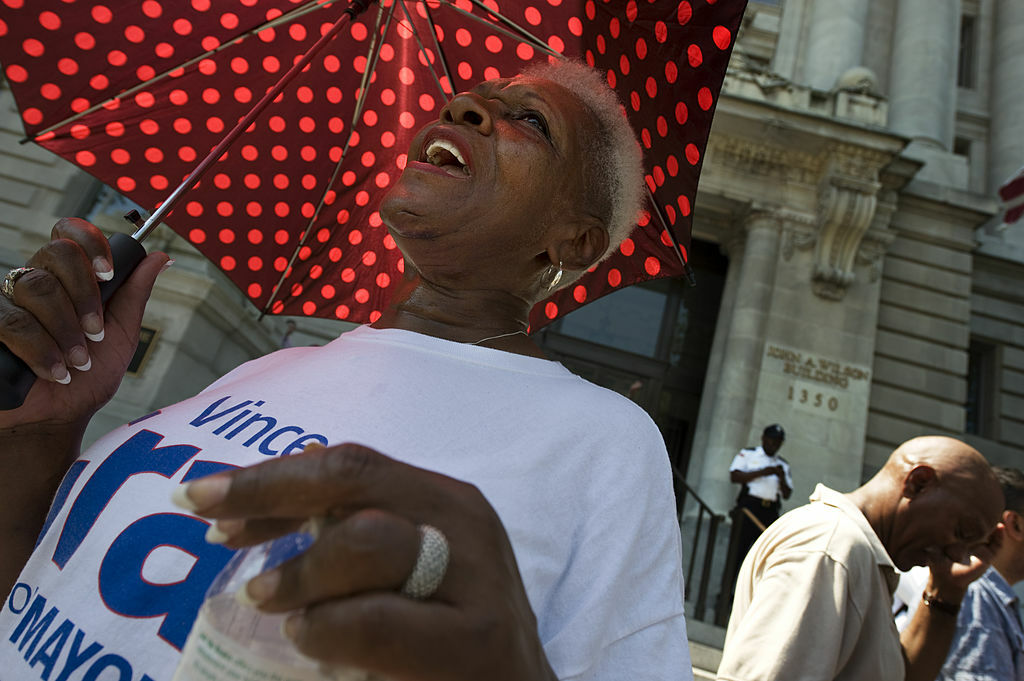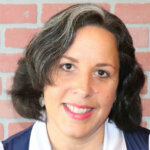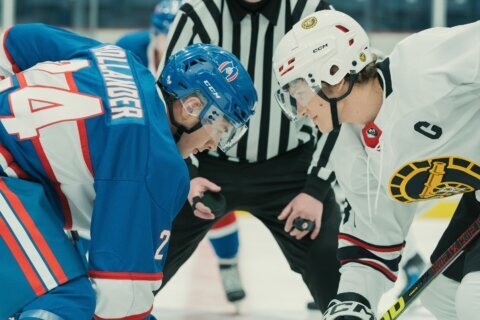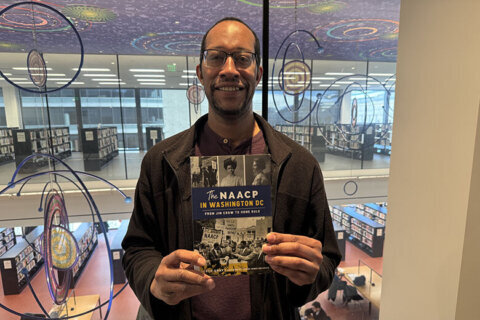
Shirley Rivens Smith lives in the same Northeast D.C. house her mother moved into in 1956, and she said that when she was growing up, the neighborhood was a haven, a community.
“I didn’t know anything but black people,” said Rivens Smith, 77, the membership chair of the D.C. branch of the NAACP. “We were all a family — the doctor, lawyer, the homeless people.”
And while D.C. was largely a segregated city, “there were white and black people living from one block to the other,” she said. “We never had a problem with each other.”
Even so, she could not escape the times in which she lived.
“There were nasty people,” Rivens Smith said.
She recalled an instance when she was 14 years old at a playground on 17th and P streets. An old white man told her to get off the playground, adding a racial slur.
Rivens Smith said that she was not angry with the man, but she told him that she would “kick his [expletive]” if he called her that word again.
That incident didn’t turn Rivens Smith against white people, she said.
“I know that a lot of hate is out there. But the hate that people have, I don’t internalize it for me. I’m aware of it. I keep my distance from it. The same way I told that old man back then, I do that still today,” she said.
These days, Rivens Smith said, more black and white people associate with each other than ever before; people are more educated, have good jobs and make more money. But this progress came with a price, she said.
“People in the ’50s, ’60s, ’70s into the ’80s, were struggling for something that their great-great-grandparents didn’t have,” she said. “It came to fruition and stopped. Those doing it were old and died out.”
She added, “Younger people took another direction because they were able to do things their grandparents and great-grandparents couldn’t do. But they didn’t see how to reach back. They weren’t able to reach back and pull people forward.”
That’s led to a lack of community, she said. Instead of getting out, associating with others and meeting people as individuals, too many people now want to just associate with a particular group
“The progress that we could be making — that was happening when I was a teenager, that I feel would have taken us much further in this country — is [betrayed by] the fact that we got labeled and labeled ourselves and got stuck somewhere,” she said.
She also believes the media has a hand in fueling new racial tensions by concentrating on bad news, and some groups are grabbing on to that hate and using it for their agendas.
“They’re pushing this hate so much,” Rivens Smith said. “It’s not a lot of people. It’s not all white people. It’s not all black people. It’s a group of people who have gotten into the environment.”
As president of her neighborhood’s civic association, Rivens Smith said she tries to interact with everyone, no matter what race they are, coming into the community.
Neighborhoods used to have heroes on each block, who took care of children, paid attention to sick people and did things for others, she said. Now, “We walk like our heads are in a cloud, and we’re on our own little island.”
Her solutions?
Respecting each other and treating people as individuals. “We have to start to break the ice one-on-one. Not masses of people, just one-on-one.”
And people need to get involved and head to the polls.
“I don’t care if you vote for Republican, Democrat. You have to be active. You have to do something. If we’re going to survive, we all have to pick up and do our part.”









